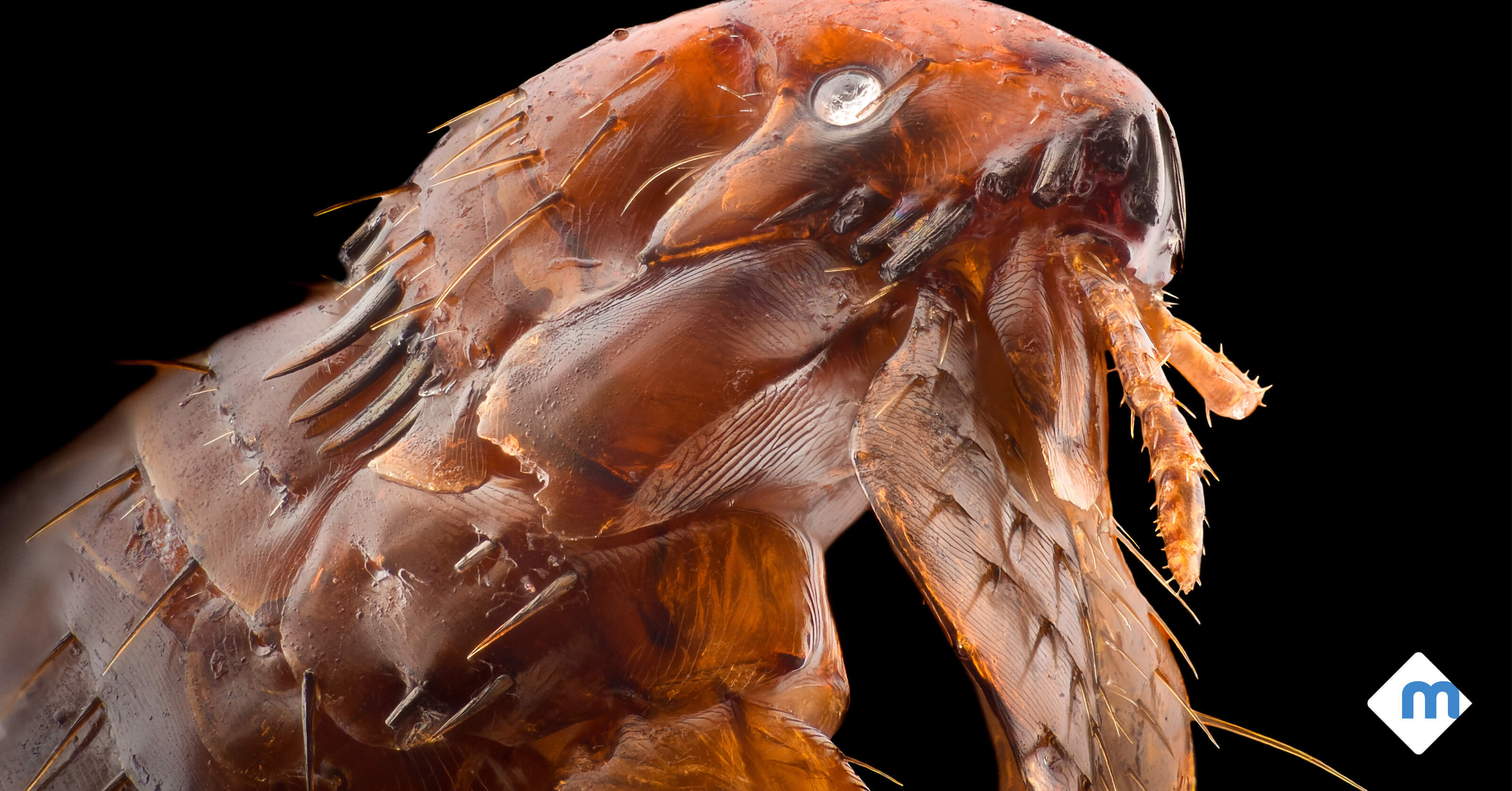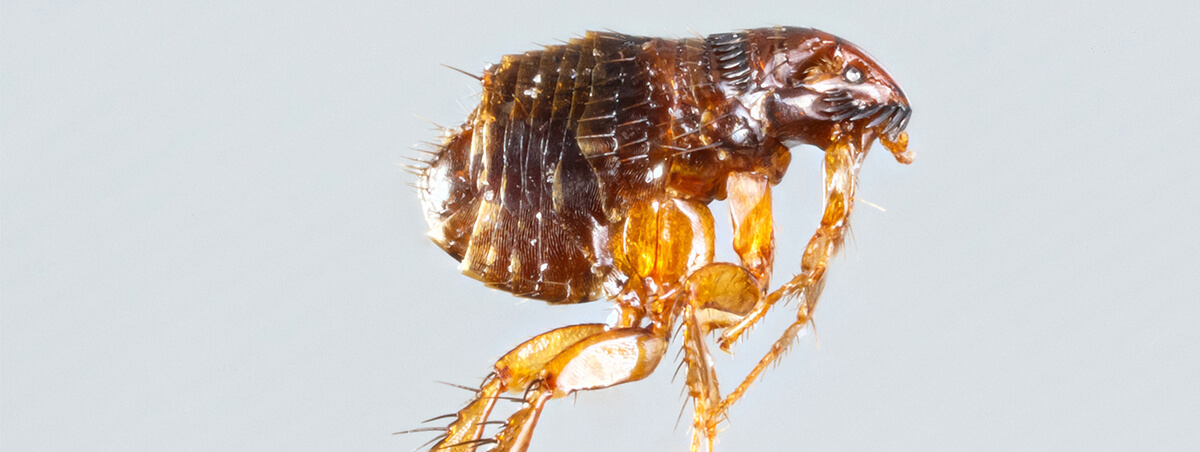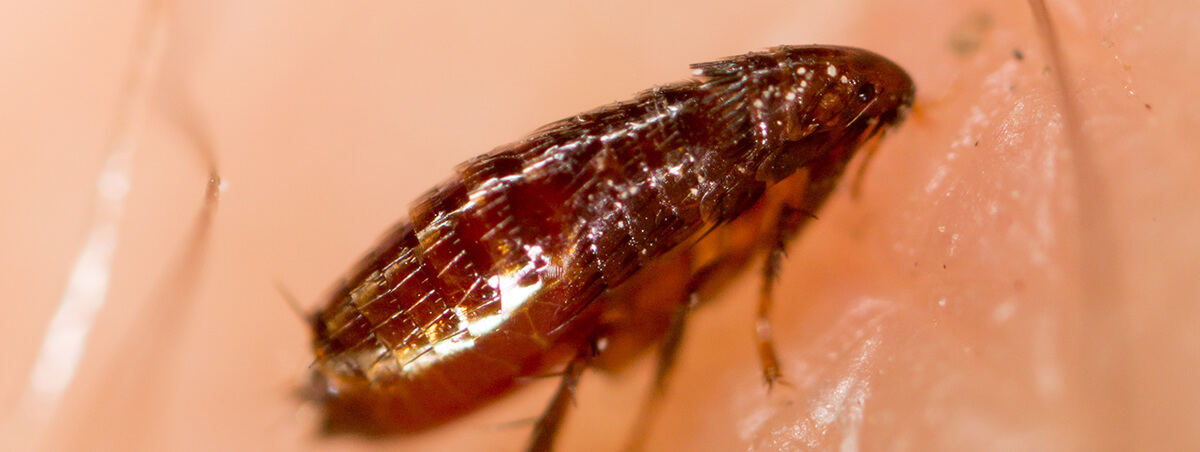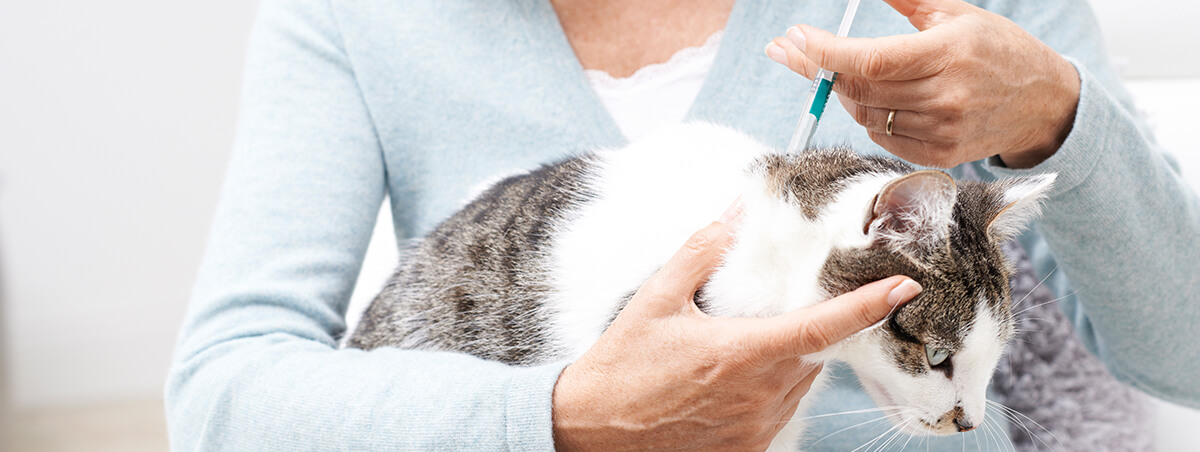The Frightening Truth about Fleas

When you really stop to think about it, the amount of damage a tiny bug can do is astounding.
During the European Black Plague epidemic of the 1600s, fleas played a major role (if not the major role) in spreading the disease. Jumping between rodent and human hosts, fleas were vectors for bubonic plague transmission. The “Black Death” killed over 25 million people and devastated countless more.
They may be little, but fleas changed the course of history.

The Facts about Fleas
While repulsive, fleas are honestly extremely interesting…and in some ways, really impressive.
There are over 2,000 types of fleas around the world, all with slight variations. For now, we’ll focus on one of the most common types: the cat flea.
Can Fleas Jump?
Adult cat fleas are usually no more than 1/8 of an inch long (smaller than the average ant). Fleas cannot fly. However, they can generally jump up to 7 inches vertically. To put that in perspective, a 6-foot-tall human with flea-like jumping abilities would be able to jump about 336 feet.
That’s about the height of a 30-story building.
The fact that fleas can pretty easily jump onto you from the ground is pretty unsettling. Much worse than that, however, is their reproduction rate. Female fleas typically live 3-7 weeks and lay between 30-40 eggs—per day.
So on average, a single flea lays 1,085 eggs in her life.
Yeah.
1,085.
You might as well forget the saying “multiplying like rabbits.” We really should be referring to multiplying “like fleas.” If your pet picks up just one flea at a park, you could be looking at hundreds, if not thousands, of fleas in your home after just a week.

The Flea Life Cycle
Although not quite as shocking, the flea gestation process is also super interesting. Warning: queasy stomachs beware. Flea eggs hatch after 2-5 days and emerge as larvae. Flea larvae are tiny, long, hairy worms that feed on “flea dust”. Flea dust is…
Wait for it…
Bloody excrement from adult fleas.
Ew.
After about 8-15 days of feeding on this and just being generally disgusting, the larvae build small cocoons in which they reside to pupate into adults, usually between 1-2 weeks.
Temperature actually has a huge effect on the speed of the cycle. Under normal room temperature, the entire flea life cycle takes about 18-30 days. But in colder weather, things get weird.
Fully developed fleas can stay in their cocoons for up to a year, and eggs can take months to hatch. Basically, the warmer the climate, the quicker the life cycle progresses. We hate to admit it, but it’s actually pretty cool. No pun intended.

Fleas and Disease
Fleas devour up to 15 times their weight in blood every day. For a large animal with only several fleas, this is pretty inconsequential. But, hundreds of fleas on a small kitten or puppy could be fatal due to blood loss or related anemia alone.
You and your pets can develop allergies to flea bites. Such allergic reactions are extremely uncomfortable. If your pet is hosting hundreds of hungry fleas when an allergy surfaces, the discomfort could drive your poor buddy to scratch the bites raw, opening them up to potential infection.
As if it weren’t bad enough, fleas can additionally carry parasites—most commonly tapeworms. When your pet ingests fleas while grooming, the tapeworms get released into your pet’s intestines, creating even more issues.
As discussed earlier, fleas are notorious for transmitting disease. Among the human diseases so thoughtfully carried by fleas are cat-scratch disease, bubonic plague, murine typhus, and a typhus-like disease called cat flea rickettsiosis. If you’ve come into significant contact with fleas, we really recommend paying close attention to how you feel and seeing a doctor if things seem awry.

Dealing with Fleas
If you become infested, seek out professional treatment immediately. Fleas don’t just go away spontaneously. When staring down the barrel of a flea infestation, it’s important to be armed with the facts.
For one thing, the flea lifespan and incubation period are greatly affected by weather and temperature. If your invasion clear-up coincides with cooler weather, it’s possible that the fleas are just taking longer to incubate. A pest professional will take into account weather and life cycles in planning treatment.
Your field expert will also help you with both the live fleas as well as their eggs and cocoons. Since, few products can penetrate these encasements, , your service will likely ask you to do the following to combat the entire flea population:
- Turn up the heat in your home to speed the hatching and incubation processes.
- Vacuum daily to dispose of and hatch the eggs.
- Thoroughly wash all bedding, carpets, furniture, cars, and anything that came into contact with infected people or animals.
- Bathe pets using anti-flea shampoos and treatments.
- Get your pets professionally treated for fleas.
Also, fleas can go up to two weeks without food. They are nothing if not incredible resilient (and really inconvenient). So, even after professional flea clean outs, you’re not out of the woods for a while. Prevention is still key.

Preventing Fleas
After all of this disheartening information about fleas, it can feel as though preventing fleas will always be a losing battle.
It’s not!
Much of the prevention routine is simply administering preventative flea treatments to your pets, such as flea shampoos, flea collars, and oral and topical medications. A couple fleas picked up here and there by your pet won’t be able to cause infestations if they’re quickly eradicated by anti-flea products.
Ultimately, the best thing you can do is be vigilant. Regularly inspect your pet and your home by keeping your eyes peeled for these minuscule brown parasites. The earlier you catch a budding flea coup, the easier (and quicker) it will be to get rid of them.
If you have questions or are currently experiencing a flea infestation, give us a call. Fleas are a serious threat to the health and well-being of your family and pets. The sooner you start the intensive treatment process, the sooner you can go back to living the best version of your life. We’re here to help!

